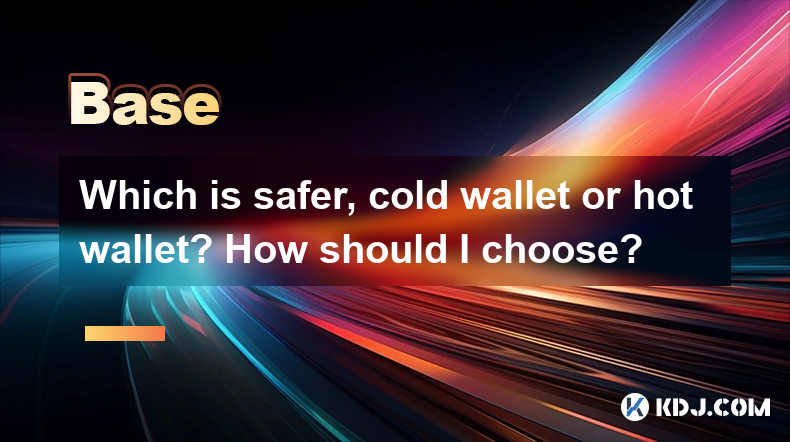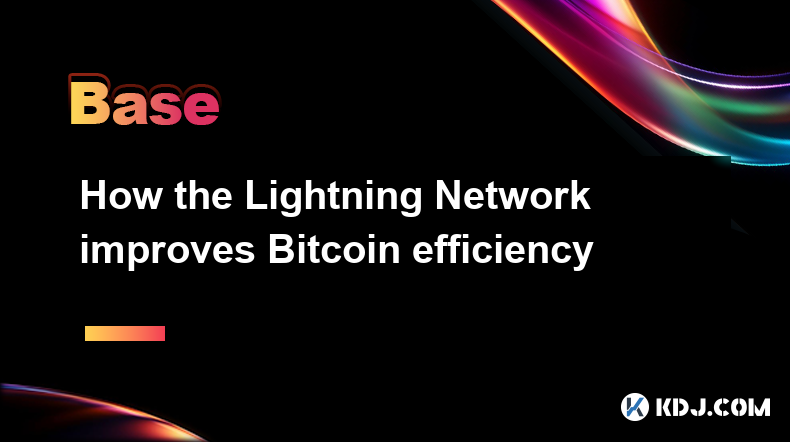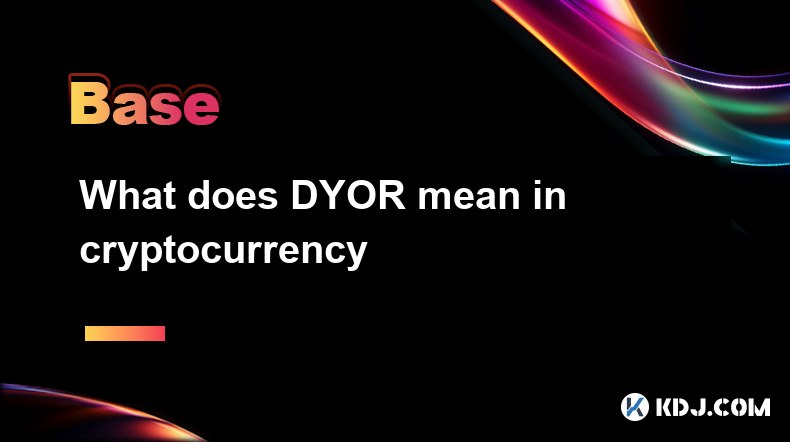-
 Bitcoin
Bitcoin $84,140.6204
-0.65% -
 Ethereum
Ethereum $1,571.7107
-1.08% -
 Tether USDt
Tether USDt $0.9999
-0.01% -
 XRP
XRP $2.0657
-1.57% -
 BNB
BNB $587.0749
0.63% -
 Solana
Solana $131.5042
2.64% -
 USDC
USDC $0.9999
0.00% -
 TRON
TRON $0.2477
-2.84% -
 Dogecoin
Dogecoin $0.1541
-0.47% -
 Cardano
Cardano $0.6147
0.44% -
 UNUS SED LEO
UNUS SED LEO $9.0845
-3.46% -
 Chainlink
Chainlink $12.3082
-0.44% -
 Avalanche
Avalanche $18.9724
-0.49% -
 Toncoin
Toncoin $2.9419
1.59% -
 Stellar
Stellar $0.2373
-0.06% -
 Shiba Inu
Shiba Inu $0.0...01167
-1.19% -
 Sui
Sui $2.0762
-1.59% -
 Hedera
Hedera $0.1594
0.08% -
 Bitcoin Cash
Bitcoin Cash $329.6626
2.63% -
 Polkadot
Polkadot $3.5903
0.80% -
 Litecoin
Litecoin $74.4026
-0.45% -
 Hyperliquid
Hyperliquid $16.1660
1.52% -
 Dai
Dai $1.0000
-0.01% -
 Bitget Token
Bitget Token $4.3245
-0.26% -
 Ethena USDe
Ethena USDe $0.9991
-0.01% -
 Pi
Pi $0.6112
-1.00% -
 Monero
Monero $215.3188
-1.23% -
 Uniswap
Uniswap $5.1249
-1.18% -
 OKB
OKB $50.3147
-2.91% -
 Pepe
Pepe $0.0...07131
-0.66%
Which is safer, cold wallet or hot wallet? How should I choose?
Cold wallets offer high security for long-term crypto storage, while hot wallets provide convenience for frequent transactions but are less secure due to internet connectivity.
Apr 07, 2025 at 03:14 pm

When it comes to managing your cryptocurrencies, one of the most critical decisions you'll face is choosing between a cold wallet and a hot wallet. Both types of wallets have their own set of advantages and security features, and understanding these can help you make an informed decision. In this article, we'll delve into the specifics of cold and hot wallets, their safety levels, and how you should choose the right one for your needs.
Understanding Cold Wallets
Cold wallets, also known as hardware wallets or offline wallets, are physical devices that store your cryptocurrency keys offline. This means they are not connected to the internet, which significantly reduces the risk of hacking and cyber attacks. Examples of cold wallets include devices like Ledger Nano S, Trezor, and KeepKey.
The primary advantage of a cold wallet is its high level of security. Since the private keys are stored offline, they are not susceptible to online threats such as phishing, malware, or hacking attempts. This makes cold wallets the preferred choice for long-term storage of large amounts of cryptocurrency.
However, cold wallets are not without their drawbacks. They can be more expensive than hot wallets, and setting them up can be more complex. Additionally, if you lose your cold wallet or it gets damaged, you might lose access to your funds if you don't have a backup of your recovery seed.
Understanding Hot Wallets
Hot wallets are digital wallets that are connected to the internet. They can be accessed through a computer, smartphone, or other internet-enabled devices. Examples of hot wallets include software wallets like Exodus, Electrum, and mobile wallets like Trust Wallet.
The main advantage of hot wallets is their convenience and accessibility. You can easily send and receive cryptocurrencies at any time, making them ideal for frequent transactions and day-to-day use. They are also generally free or low-cost compared to cold wallets.
However, the downside of hot wallets is their vulnerability to online threats. Since they are connected to the internet, they are at a higher risk of being hacked, phished, or compromised by malware. This makes them less secure than cold wallets, especially for storing large amounts of cryptocurrency.
Comparing Safety Levels
When comparing the safety levels of cold and hot wallets, it's clear that cold wallets offer a higher level of security. Their offline nature makes them immune to most online threats, which is crucial for protecting your cryptocurrency investments.
On the other hand, hot wallets are less secure due to their internet connectivity. While they offer convenience, they are more susceptible to hacking and other cyber attacks. If you choose to use a hot wallet, it's essential to take additional security measures, such as enabling two-factor authentication and using strong, unique passwords.
How to Choose Between Cold and Hot Wallets
Choosing between a cold wallet and a hot wallet depends on your specific needs and circumstances. Here are some factors to consider:
Amount of Cryptocurrency: If you have a large amount of cryptocurrency that you plan to hold for the long term, a cold wallet is the safer choice. For smaller amounts or frequent transactions, a hot wallet might be more suitable.
Frequency of Transactions: If you need to make frequent transactions, a hot wallet's convenience is beneficial. For less frequent transactions, a cold wallet's security is more important.
Security Concerns: If security is your top priority, a cold wallet is the better option. If you're willing to take on more risk for the sake of convenience, a hot wallet might be acceptable.
Budget: Cold wallets can be more expensive, so consider your budget when making a decision. Hot wallets are often free or low-cost, making them more accessible for those on a tight budget.
Setting Up a Cold Wallet
If you decide to use a cold wallet, here's how you can set it up:
Purchase a Cold Wallet: Choose a reputable brand like Ledger or Trezor and purchase the device from their official website or authorized retailers.
Unbox and Initialize: Follow the manufacturer's instructions to unbox and initialize your cold wallet. This usually involves connecting the device to your computer and following the on-screen prompts.
Create a New Wallet: Use the device's interface to create a new wallet. You'll be prompted to generate a recovery seed, which is a series of words that you must write down and keep in a safe place.
Set Up a PIN: Set up a PIN to secure your cold wallet. This adds an extra layer of security to prevent unauthorized access.
Transfer Funds: Once your cold wallet is set up, you can transfer your cryptocurrencies to it. Use the wallet's address to send funds from your exchange or hot wallet.
Setting Up a Hot Wallet
If you opt for a hot wallet, here's how you can set it up:
Choose a Hot Wallet: Select a reputable hot wallet that supports the cryptocurrencies you want to store. Popular options include Exodus, Electrum, and Trust Wallet.
Download and Install: Download the wallet software from the official website and install it on your device. Follow the installation instructions provided.
Create a New Wallet: Launch the wallet software and create a new wallet. You'll be prompted to generate a recovery seed, which you should write down and store securely.
Set Up Security Measures: Enable two-factor authentication and set a strong, unique password to enhance the security of your hot wallet.
Transfer Funds: Once your hot wallet is set up, you can transfer your cryptocurrencies to it. Use the wallet's address to send funds from your exchange or another wallet.
Frequently Asked Questions
Q: Can I use both a cold wallet and a hot wallet?
A: Yes, many cryptocurrency users employ a strategy known as "cold storage for the majority, hot storage for the minority." This means keeping the bulk of their funds in a cold wallet for security and a smaller amount in a hot wallet for daily transactions.
Q: What should I do if I lose my cold wallet?
A: If you lose your cold wallet, you can recover your funds using the recovery seed you wrote down during setup. It's crucial to keep this seed in a secure location, as anyone with access to it can control your funds.
Q: Are there any alternatives to cold and hot wallets?
A: Yes, there are other types of wallets, such as paper wallets and multi-signature wallets. Paper wallets involve printing out your private keys and storing them offline, while multi-signature wallets require multiple signatures to authorize transactions, adding an extra layer of security.
Q: How often should I update my wallet software?
A: It's important to keep your wallet software up to date to protect against known vulnerabilities. Check for updates regularly and install them as soon as they are available.
Disclaimer:info@kdj.com
The information provided is not trading advice. kdj.com does not assume any responsibility for any investments made based on the information provided in this article. Cryptocurrencies are highly volatile and it is highly recommended that you invest with caution after thorough research!
If you believe that the content used on this website infringes your copyright, please contact us immediately (info@kdj.com) and we will delete it promptly.
- Kaspa (KAS) Price Prediction Hints at Accumulation Before Potential Surge
- 2025-04-17 22:15:13
- FET Price Prediction: Artificial Superintelligence Alliance (FET) Cryptocurrency Rebounds 10%
- 2025-04-17 22:15:13
- U.S. President Donald Trump Slammed Fed Chair Jerome Powell
- 2025-04-17 22:15:12
- Running a laundromat can't be as "easy" as potential investors may believe it is
- 2025-04-17 22:15:12
- BlockDAG (BDAG) Presale Explosion and Mobile Mining Powerhouse
- 2025-04-17 22:05:12
- Solana (SOL) Price Prediction: Eyes on $180 as Structure Turns Bullish
- 2025-04-17 22:05:12
Related knowledge

How the Lightning Network improves Bitcoin efficiency
Apr 17,2025 at 08:56pm
The Lightning Network represents a significant advancement in the Bitcoin ecosystem, aiming to address some of the most pressing issues related to transaction speed and cost. By enabling off-chain transactions, the Lightning Network drastically improves Bitcoin's efficiency, allowing for faster and cheaper transactions. This article will explore how the...

Analysis of the KYC process of cryptocurrency exchanges
Apr 17,2025 at 05:07pm
The Know Your Customer (KYC) process is a critical component in the operations of cryptocurrency exchanges. It serves as a regulatory measure to prevent fraud, money laundering, and other illicit activities. KYC procedures are designed to verify the identity of users and ensure compliance with financial regulations. This article delves into the various ...

What does Floor Price mean in the NFT market
Apr 17,2025 at 12:42am
The term Floor Price is a critical concept within the NFT (Non-Fungible Token) market, serving as a key indicator for both buyers and sellers. In essence, the floor price represents the lowest price at which an NFT from a particular collection is currently listed for sale on a marketplace. This price point is crucial for understanding the perceived valu...

How to understand the TVL indicator in DeFi projects
Apr 17,2025 at 03:28pm
Understanding the TVL indicator in DeFi projects is crucial for investors and enthusiasts looking to gauge the health and popularity of decentralized finance platforms. TVL, or Total Value Locked, represents the total amount of assets that are currently staked or locked in a DeFi protocol. This metric serves as a barometer for the trust and interest tha...

What does DYOR mean in cryptocurrency
Apr 17,2025 at 03:00pm
DYOR, or 'Do Your Own Research,' is a crucial mantra in the cryptocurrency community. It emphasizes the importance of individuals conducting their own thorough investigations before making any investment decisions. In the fast-paced and often volatile world of cryptocurrencies, relying solely on others' advice or the hype surrounding a particular coin c...

What is Alpha? How to find Alpha opportunities?
Apr 16,2025 at 12:42pm
What is Alpha?Alpha is a term widely used in the financial world, including the cryptocurrency market, to describe the ability of an investment to outperform a benchmark. In the context of cryptocurrencies, alpha refers to the excess return an investor achieves over the market's average return. For example, if the overall crypto market grows by 10% in a...

How the Lightning Network improves Bitcoin efficiency
Apr 17,2025 at 08:56pm
The Lightning Network represents a significant advancement in the Bitcoin ecosystem, aiming to address some of the most pressing issues related to transaction speed and cost. By enabling off-chain transactions, the Lightning Network drastically improves Bitcoin's efficiency, allowing for faster and cheaper transactions. This article will explore how the...

Analysis of the KYC process of cryptocurrency exchanges
Apr 17,2025 at 05:07pm
The Know Your Customer (KYC) process is a critical component in the operations of cryptocurrency exchanges. It serves as a regulatory measure to prevent fraud, money laundering, and other illicit activities. KYC procedures are designed to verify the identity of users and ensure compliance with financial regulations. This article delves into the various ...

What does Floor Price mean in the NFT market
Apr 17,2025 at 12:42am
The term Floor Price is a critical concept within the NFT (Non-Fungible Token) market, serving as a key indicator for both buyers and sellers. In essence, the floor price represents the lowest price at which an NFT from a particular collection is currently listed for sale on a marketplace. This price point is crucial for understanding the perceived valu...

How to understand the TVL indicator in DeFi projects
Apr 17,2025 at 03:28pm
Understanding the TVL indicator in DeFi projects is crucial for investors and enthusiasts looking to gauge the health and popularity of decentralized finance platforms. TVL, or Total Value Locked, represents the total amount of assets that are currently staked or locked in a DeFi protocol. This metric serves as a barometer for the trust and interest tha...

What does DYOR mean in cryptocurrency
Apr 17,2025 at 03:00pm
DYOR, or 'Do Your Own Research,' is a crucial mantra in the cryptocurrency community. It emphasizes the importance of individuals conducting their own thorough investigations before making any investment decisions. In the fast-paced and often volatile world of cryptocurrencies, relying solely on others' advice or the hype surrounding a particular coin c...

What is Alpha? How to find Alpha opportunities?
Apr 16,2025 at 12:42pm
What is Alpha?Alpha is a term widely used in the financial world, including the cryptocurrency market, to describe the ability of an investment to outperform a benchmark. In the context of cryptocurrencies, alpha refers to the excess return an investor achieves over the market's average return. For example, if the overall crypto market grows by 10% in a...
See all articles























































































